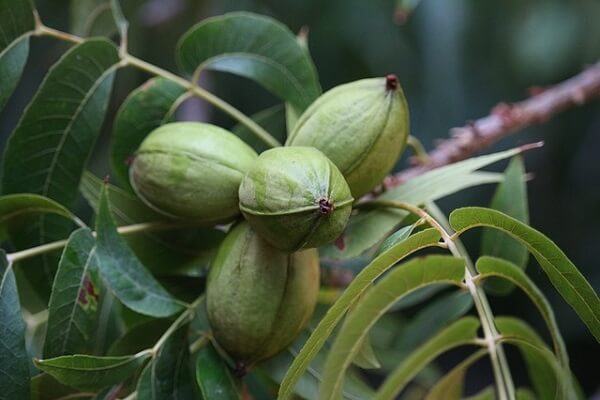Ever thought about growing your own pecans?
Are you planning to farm pecan nuts? From choosing the right cultivator to preparing the soil, AgriMag can help you with a range of equipment that you’ll need when you’re farming pecan nuts. Knowing how to prevent and treat diseases is also instrumental to the success of your business.

Image Source – pixabay.com
Preparation for planting
Before you plant your pecan nut tree, it’s important to prepare the soil adequately. Proper preparation creates the right environment for the trees to thrive. The soil needs to have good drainage in order for it to be suitable for pecan nut farming. The minimum tree depth that is required to grow these trees successfully is 2m. Minimum compaction is also required. You’ll need to dig holes into the soil and take samples for analysis before to assess the suitability of the soil. Testing needs to be carried out far in advance so that you have a chance to rectify any issues and prepare the soil properly. If the soil needs to be treated with lime, you’ll need to pour agricultural lime over the field a year in advance. Disking and ploughing can be used to incorporate the lime into the topsoil.
Planting pecan nut trees
Planting your trees at the right time of year is key to farming pecan nuts since these trees can only be transplanted during the cooler months. You’ll need to trim the long tap root system of the young trees and put them in a shaded area before planting. Wet sawdust and place it on their roots so that they stay moist. Check the health of each young tree and examine their root system before you plant them. Next, you’ll need to dig the holes so that they have a minimum depth of 1m. The trees need to be planted at the same depth as they were in the nursery bag. Make sure that the root collar is not exposed to the sun as shallow planting can have a negative impact on the health of the tree. Fill the hole with loose soil, compost, zinc, and fertilizer that has been mixed together

Image Source – pixabay.com
Irrigation
Before you set up an orchard, you’ll need to ensure that you have a proper water supply. You’ll need to use quality water as high levels of sodium or nitrogen can have a negative impact on the development of pecan nuts. Excessive amounts of sulphate or bicarbonate should also be avoided. If the water has high levels of these elements, the fertiliser needs to be adjusted as compensation. In some instances, you may need to reconsider planting trees in that area if the conditions are not conducive to the growth of pecan nuts. It’s vital to take samples of the water for further analysis before you start farming pecan nuts. Taking the time to analyse the water quality can save you time and money in the long run.
Choosing your cultivator
Choosing the right cultivator is a vital element of any farming enterprise. Not only will you need to choose the right type of tree, but you’ll also need to select quality trees. Inspect the trees before you purchase them. The tree trunk and root development should be consistent. Two main cultivators include protandrous cultivars and protogynous cultivars. The protandrous variations release their pollen earlier than the protogynous variations. It’s important to understand which cultivator you’ve planted and how the development of the pecan nuts is impacted. Western Schley pecan nut trees can be used to create windbreaks for the other trees in your orchard.

Image Source – pixabay.com
Now that you have a better understanding of how to cultivate pecan nuts, you can get your orchard off to a good start. This type of farming requires proper soil conditions, quality water, and healthy trees to succeed. You can find farming equipment on AgriMag.






